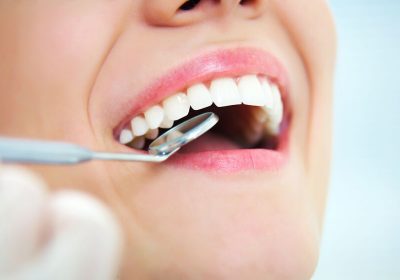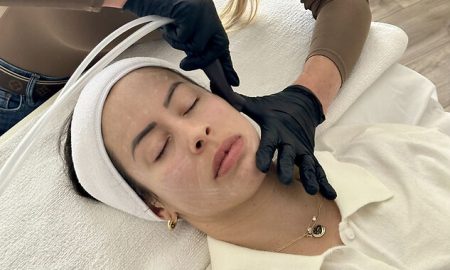Smile architects, Dr. Jeremy D. Kay, DMD and Dr. Nicole Deakins at The Dental Spa, survey each patient’s dental “properties” and design reconstructive blueprints, planning every detail of the treatment based on our artistic vision. This vision is achieved through support from the highly experienced staff, technicians, and hygienists—ensuring every patient leaves with a smile more radiant than before. Lead ng with our passion for aesthetics and demanding the best at every turn for our patients, our innovative methods have transformed what is possible in aesthetics and successfully ushered dentistry into the luxury market.

We've heard it all. "Chewing gum causes cavities," "Sugar-free gum is terrible for your teeth' health," and "You can substitute brushing your teeth with chewing gum." Now, whether or not these statements deem to be true is the question. To bust these myths and learn the truth behind chewing gums' effects on your oral health, Haute Beauty sat down with Haute Beauty experts at The Dental Spa to discuss.
Is chewing gum good for your oral health?
Chewing gum can be good for your oral health, as long as it is the right kind! Sugar-free gum with xylitol has many benefits for your oral health. Xylitol inhibits the growth of bacteria that contribute to tooth decay and helps to neutralize the pH of the oral cavity, so it can actually work to prevent dental cavities.
In addition, chewing gum also stimulates saliva products, which help prevent bad breath, tooth decay, and gum disease and can strengthen enamel. Chewing gum can also help clean the teeth of plaque and food particles and reduce frequent snacking between meals.
Does teeth whitening gum work?
There is minimal research into the effectiveness of whitening gum. Whitening gums generally have abrasive properties to help reduce the surface stain on the teeth; therefore, they are not whitening your teeth' enamel. The best way to whiten teeth is to use a professional whitening gel or in-office deep whitening product.
 Photo Credit: Shutterstock
Photo Credit: Shutterstock
Does chewing gum raise your chances of cavities?
Chewing gum does not increase the risk of cavities, as long as it is sugar-free! Sugar-free gum can help clean the teeth and reduce the risk of cavities but is not a substitute for brushing and flossing. On the other hand, chewing gum that contains sugar can increase the risk of cavities due to the continuous introduction of sugar into the oral cavity that cavity-causing bacteria feed on to grow and subsequently break down the enamel surface.
Can chewing gum lead to jaw problems?
Chewing gum generally exacerbates the symptoms of any ongoing TMJ problems, and excessive chewing can lead to muscle discomfort and headaches. Therefore, it is advisable not to chew gum if any symptoms of jaw pain are present; however, chewing gum in moderation generally does not cause jaw problems.

























